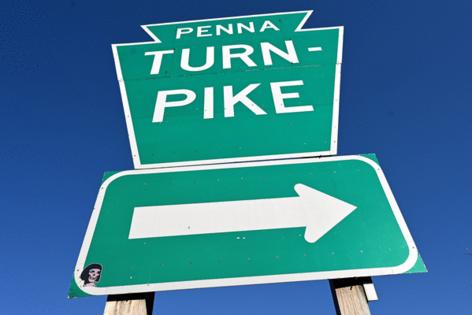ATMs on Pa. Turnpike were shut down over the weekend. Here's why they still aren't working
Published in Business News
The shutdown of automatic teller machines at all 17 Pennsylvania Turnpike rest areas since last Wednesday, leaving travelers without access to cash on the long Thanksgiving weekend, has shed light on a financial struggle between the machines’ manager, Paramount Asset Group, and its creditors.
“Without any prior notification,” Paramount told the Pennsylvania Turnpike Commission it was shutting off the ATMs on Nov. 27 and had “begun to remove cash,” the commission said in a statement to The Inquirer.
Commission officials told Paramount its contract required the company to reopen the machines, but they remained down as of Tuesday, commission spokesperson Marissa Orbanek said.
Paramount, based in Lancaster, Pennsylvania, blamed the shutdown on “a recent lawsuit and judgment between Paramount’s owner and investors,” according to the commission.
Owner Daryl Heller and other Paramount officials did not respond Tuesday to inquiries about the ATMs and creditor complaints.
Amish and Mennonite investors
Court records show Paramount and Heller have faced a growing list of legal claims from banks and investors who say they are owed millions.
On Nov. 21, a judge in Lancaster County ordered Paramount to pay $138 million to investors in funds set up by Prestige Investment Group, a firm principally owned by Heller, to invest in the ATM network.
When Paramount failed to pay, the court order required Paramount to give up control of its ATMs, transferring the network to investment funds set up by Prestige, so the fund investors might be paid from future network revenues.
Many of the investors are members of Amish and other Mennonite communities, said Chris Felix, a Honey Brook salesman who invested $104,000 in a Prestige fund to finance Paramount ATMs in 2020.
“The Amish and Mennonite communities in Lancaster are heavily invested in this; it’s the biggest group of multimillionaires you have never heard of,” said Matt Haverstick of Philadelphia’s Kleinbard law firm, a lawyer for the investors. In a court filing Tuesday, Haverstick said the funds had around 2,700 investors.
According to Felix, the Prestige investment paid him $2,250 a month, for a steady 13% pretax investment yield, far more than bank deposits or investment-grade bonds.
But the checks stopped arriving in April of this year.
Fund managers over the next several months came up with a litany of reasons — a change from monthly to quarterly payments, new ATM rules, federal compliance requirements that slowed payments — and blew through a series of self-induced deadlines.
At one point Paramount offered to repay investors their principal, without interest, and told creditors that a majority of the investors had agreed to end their claims if they got their money back, according to investors who spoke to The Inquirer. But the company failed to pay up, blowing more deadlines, the last of them on Nov. 20, just before the court order.
On Nov. 21, DLA Piper, a national law firm representing the company, resigned, citing Paramount’s failure to make the promised payments. The firm added that its attorneys lacked the “assistance, cooperation and communications” from Paramount that they would need to keep representing the company.
The court barred Heller from managing the ATMs and required their transfer to the investors by Monday with future profits to be available for their benefit, according to Haverstick.
But the group has so far gotten only some of the data it would need to restart the ATMs, he said.
Haverstick said he hopes to belatedly collect more data from Paramount to verify how many of the 25,000 ATMs the company said it managed were in service, collect their cash-flow information, and transfer control of the network to another operator so they can generate cash to help pay what Paramount owes.
If the network can’t get back in business soon, he’s worried fed-up retailers who host ATMs will transfer their business to rival ATM networks.
©2024 The Philadelphia Inquirer, LLC. Visit at inquirer.com. Distributed by Tribune Content Agency, LLC.












Comments